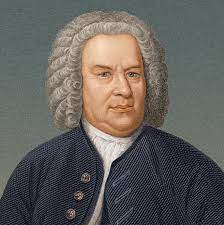Johann Sebastian Bach, one of the most renowned and influential composers in the history of classical music, left an indelible mark on the world of music. Here are ten fascinating facts about this musical genius:
- Prolific Composer: Bach was an incredibly prolific composer, producing over 1,000 works during his lifetime. His compositions include masterpieces in nearly every genre of his time, such as cantatas, concertos, fugues, and keyboard works.
- Musical Family: Bach came from a family of musicians. He was born in 1685 in Eisenach, Germany, into a family that had produced generations of musicians. His father, Johann Ambrosius Bach, and his uncles were all accomplished musicians.
- Orphaned at a Young Age: Bach lost both his parents by the age of ten. After their deaths, he moved to Ohrdruf to live with his older brother, Johann Christoph, who was also a musician. It was in Ohrdruf that Bach received his earliest formal music education.
- Master of the Fugue: Bach’s work is often associated with complex and intricate contrapuntal compositions. His mastery of the fugue, a form of composition where a musical theme is repeated and developed in various voices, is unparalleled. His “Art of Fugue” remains a pinnacle of the form.
- Organ Virtuoso: Bach was known for his extraordinary skills as an organist. He held several important positions as a church organist throughout his life. His performances were not only musically remarkable but also technically innovative, as he contributed to the development of the pipe organ.
- Bach and Coffee: Bach had a deep affection for coffee. He composed a humorous “Coffee Cantata” that pokes fun at the 18th-century coffee addiction. The cantata features a young woman singing praises to coffee, urging her father to let her enjoy her favorite beverage.
- Cantata Sundays: During his time in Leipzig, Bach composed a new church cantata every week. These works are now known as the “church cantatas,” and they reflect the deep connection between his music and his Lutheran faith. Bach’s cantatas are celebrated for their profound spirituality and musical complexity.
- Musical Lineage: Bach’s musical influence extended to his children, many of whom became notable composers. His sons, Carl Philipp Emanuel Bach and Johann Christian Bach, were key figures in the Classical era. They carried on their father’s musical legacy.
- Innovative Tuning System: Bach is credited with the creation of the “well-tempered” tuning system. This system allowed for music to be played in all keys without sounding out of tune. His collection of compositions, “The Well-Tempered Clavier,” demonstrates the potential of this system.
- Rediscovery and Legacy: Bach’s music fell into relative obscurity after his death in 1750. It was only in the 19th century that his works were rediscovered and recognized for their immense artistic and technical value. Today, Bach’s music is performed and admired worldwide, and he is often regarded as the epitome of Baroque music.


Comments are closed